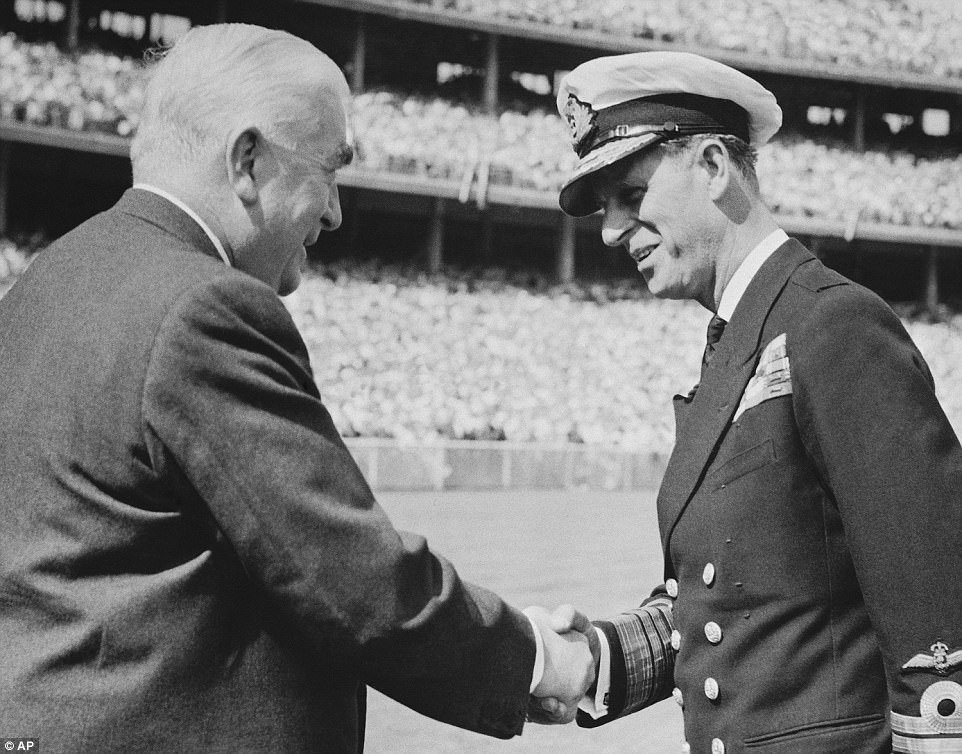On this day, 4 November 1956, channel HSV7 begins broadcasting as Melbourne’s first television station. The first Sydney station, TCN9, had already begun broadcasting on 16 September, while the ABC would join the commercial networks on 5 November. The timing is deliberate, as all three networks would be ready to broadcast the landmark Melbourne Olympic Games beginning with the Opening Ceremony on 22 November.
The Olympics were the final impetus behind Australia belatedly embracing the television revolution, which had already swept many other well-off countries around the world. It was a technology which Prime Minister Robert Menzies was sceptical of, and in 1952 he had even said to a BBC representative that ‘I hope this thing [television] will not come to Australia in my term of office.’
Menzies had delayed establishing an Australian television broadcasting service despite wartime and immediate post-war deliberations on the issue. In essence, the government thought that it was a low priority amongst the myriad of post-war and Cold War issues, and that the infrastructure required for television might divert resources needed elsewhere in the economy. It was the Postmaster General Larry Anthony who gradually persuaded the government to act, arguing that television would not detract from areas crucial to the national economy (coal, steel, building materials, power industries) and that it might even create employment opportunities and have possible defence uses.
Menzies’s ideological outlook was pivotal in the decision to create a mixed television landscape where public and private broadcasting would co-exist, an enduring and defining aspect of how television has developed in Australia. This was pure Menzies: combining the best of the British and American systems, acknowledging an important role for the state but believing that private enterprise would be the driving force behind innovation and diversity. It had much in common with the decision that the government had already made to allow a private airline company to compete with the government-owned one, in contrast to a Labor policy that called for complete state control.
Menzies was critical of the effect which the introduction of television would have on political campaigning, believing that it was essentially an entertainment medium that might dumb down debate and place too much emphasis on appearance over substance. Nevertheless, he was able to adapt to its necessities and it certainly did not impede his ongoing electoral success.
Menzies’s decision to broadcast his 1963 election policy speech (albeit as a prerecord) is considered a landmark moment in Australian political media, and received widespread positive feedback. That same year, while opening a Canberra ABC station, Menzies gave a rare positive perspective saying that television ‘gives you a nice, pleasant feeling of mastery … if you can turn it off and get on to another station. This is the highest exercise of citizenship and indeed they make it easy for you now because you can do it by remote control, by pressing a button’.
In contrast to his hesitancy towards television, Menzies was an enthusiastic supporter of the Olympics, attending many events and even recording much of the action on his own personal camera. The peak of the spectacle was the Opening Ceremony where 103,000 people packed into the Melbourne Cricket Ground to see Prince Philip launch the games in which 67 countries would compete. Australia was the first country outside of Europe and North America to host the Olympics, having won the opportunity over Buenos Aires by a single vote in 1949, and the excitement all around the country was palpable.
Hosting the Olympics was a coming-of-age moment for Australia, as the comparatively small nation proved that it could take a leading role on the world stage. It was an expression of a growing confidence which Robert Menzies as a political leader, and the prosperity of the Menzies era, had done much to cultivate. Australia would win 13 gold, 8 silver, and 14 bronze medals, coming 3rd on the medal table in what was then our best ever Olympic performance.
Further Reading:
Harry Gordon, Australia and the Olympic Games (University of Queensland Press, 1994).
Lynn Gorman, ‘Menzies and Television: A Medium He “Endured”’, Media International Australia, Vol 87, Issue 1, 1998.
TV and Melbourne Olympics, National Museum of Australia, https://www.nma.gov.au/defining-moments/resources/tv-and-melbourne-olympics
Sign up to our newsletter
Sign up for our monthly newsletter to hear the latest news and receive information about upcoming events.


